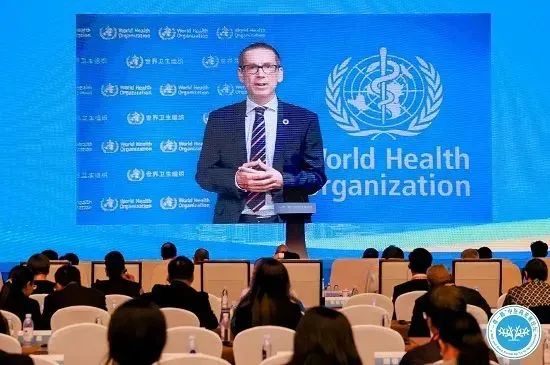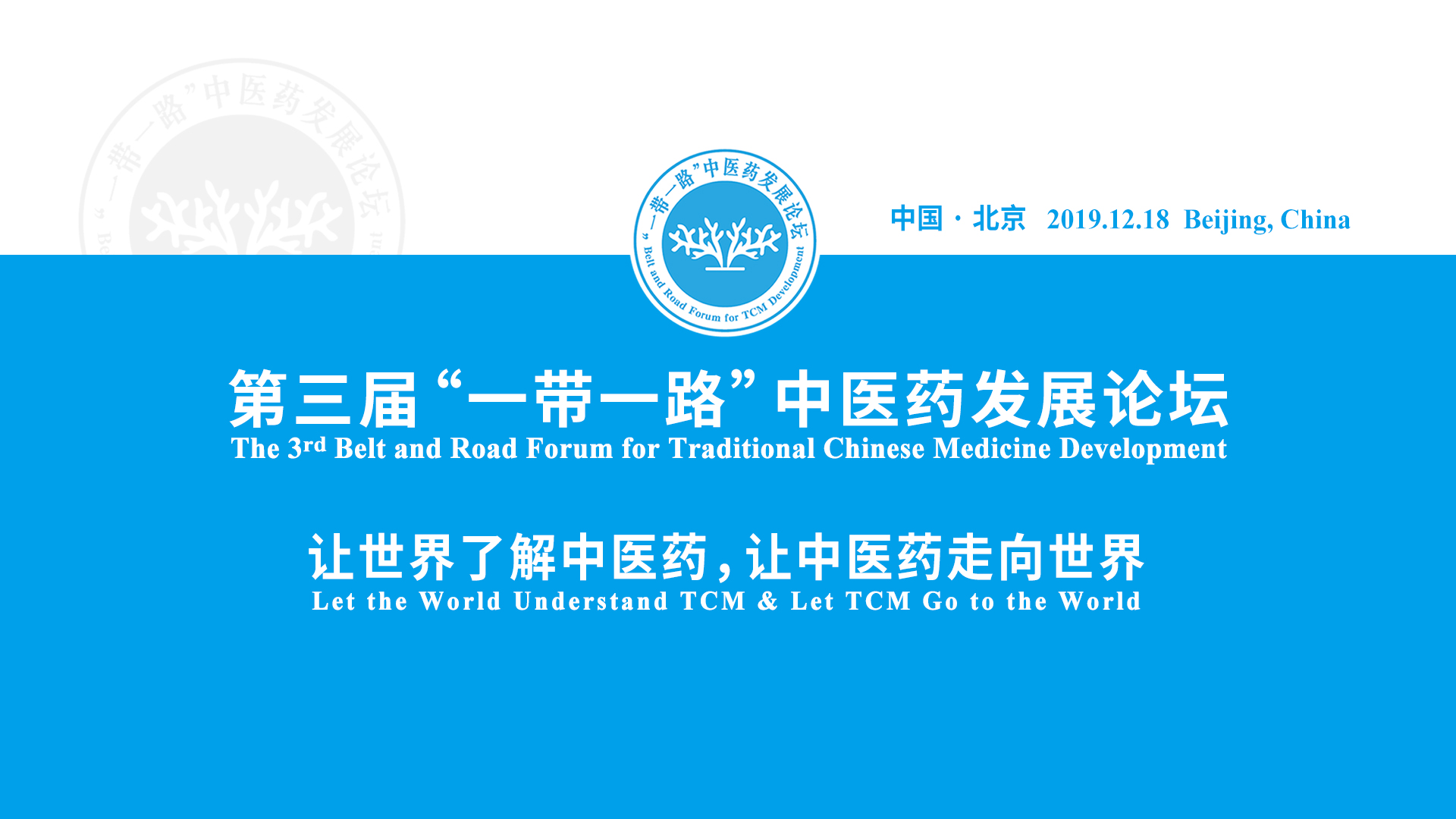
以下為致辭全文:
尊敬的嘉賓們、同事們、朋友們,早晨好!
今天,我很榮幸在第七屆“一帶一路”中醫藥發展論壇上致辭。我由衷感謝主辦方將我們聚集在一起,討論中醫藥的未來及其在全球健康中的作用。
今天,我們面臨著全球衛生領域前所未有的挑戰:非傳染性疾病負擔不斷加重。這些疾病,包括心臟病、癌癥、糖尿病和慢性呼吸道疾病,造成了全球近75%的死亡。這意味著每年約有4100萬人喪生,其中四分之三以上的死亡發生在低收入和中等收入國家。
另一個相互交織的挑戰是人口老齡化。到2050年,全球60歲及以上人口預計將達到21億,高于2020年的10億。這種人口結構變化加劇了非傳染性疾病的負擔。
這些挑戰給全球衛生系統帶來了巨大壓力,更不用說氣候變化、戰爭和沖突了。為了應對這些日益增長的挑戰,世界衛生組織強調需要對衛生系統進行變革,并重新采取初級衛生方法。通過加強以人為中心的綜合初級衛生保健,注重預防、早期發現和長期護理,世界衛生組織旨在為所有人建設一個更健康的未來。中醫藥有其獨特的優勢和作用。我想舉幾個例子:中醫強調整體方法,注重全身調節和疾病預防。“預防性治療”(治未病) 的概念尤為重要,這與世界衛生組織對非傳染性疾病和健康老齡化的“預防為主”的關注有著深刻的共鳴。
中醫還根據個人情況采用差異化治療,提供個性化治療。這種方法對患有多種慢性疾病的老年人特別有利。
作為更廣泛的衛生系統發展和改革的一部分,中國在將中醫藥納入其初級衛生保健體系方面取得了重大進展:絕大多數初級衛生保健機構能夠提供中醫藥服務。三分之二的鄉鎮衛生院和社區衛生院建立了傳統的中藥室。中醫藥被納入國家基本公共衛生服務體系,中醫藥技術得到選擇性支持。因此,中醫藥有助于提高衛生服務的可及性和公平性,并有更大的潛力為中國的全民健康覆蓋做出貢獻。
各位同仁,這些都是中國可以通過“一帶一路”倡議等國際合作和平臺與世界分享的寶貴做法和經驗,為全球實現全民健康覆蓋做出的貢獻。
世界衛生組織長期以來一直在承認和推廣傳統和補充醫學(T&CM)在健康和身心健康方面的作用,并一直倡導將經驗證的傳統做法與國家衛生系統相結合,以改善初級保健的可及性和健康結果。
在2023年5月舉行的世界衛生大會上,世界衛生組織的任務是與會員國和相關利益攸關方協商,制定2025-2034年新的全球傳統醫學戰略。中國在傳統醫學方面的豐富經驗和資源可以為這一戰略的制定和實施做出重大貢獻。
中國還可以發揮關鍵作用,促進“一帶一路”國家之間傳統醫學知識和實踐的交流,支持建立研究和培訓中心并啟動合作項目。
通過利用其龐大的網絡和專業知識,中國可以支持“一帶一路”伙伴國將傳統醫學納入國家醫療體系,加強監管框架,促進傳統醫療實踐標準化,優化傳統醫學的跨部門價值——這是世衛組織傳統醫學戰略草案的四個戰略目標。
我相信,這種伙伴關系不僅將促進全球衛生,還將加強相互學習,培養開放與合作的精神,這對應對我們時代的衛生挑戰至關重要。
預祝論壇取得圓滿成功!非常感謝。
zūn jìnɡ de ,jiā bīn men ,tónɡ shì men ,pénɡ yǒu men
zǎo chén hǎo
早晨好
It is an honor to speak here today at the 7th Belt and Road Forum for Traditional Chinese Medicine Development. I would like to extend my heartfelt gratitude to the organizers for bringing us together to discuss the future of Traditional Chinese Medicine (TCM) and its role in global health.
Today, we face an unprecedented challenge in global health: the escalating burden of noncommunicable diseases (NCDs). These diseases, including heart disease, cancer, diabetes, and chronic respiratory diseases, are responsible for nearly 75% of all deaths worldwide. This translates to approximately 41 million lives lost each year, with over three-quarters of these deaths occurring in low- and middle-income countries.
Another intertwined challenge is population ageing. By 2050, the global population aged 60 years and older is expected to reach 2.1 billion, up from 1 billion in 2020. This demographic shift exacerbates the NCD burden.
Those challenges place immense pressure on health systems worldwide, not to mention climate change, war and conflicts.
To address these growing challenges, WHO emphasizes the need for transformative changes in health systems and a primary health approach renewed. Through strengthening integrated, people-centered primary health care, focusing on prevention, early detection, and long-term care, WHO aims to build a healthier future for all. Traditional Chinese Medicine (TCM) has unique advantages and roles to play in it. I would like to give a couple of examples among many:
Traditional Chinese Medicine emphasizes on holistic pproach, focusing on overall body regulation and disease prevention. The concept of “preventive treatment” (治未病 zhì wèi bìng) is particularly important, resonates deeply with WHO’s focus on “prevention first” , for NCDs and healthy ageing.
Traditional Chinese Medicine also uses differentiated reatment based on individual conditions, providing personalized treatment. This method is especially advantageous for older population with multiple chronic conditions.
China has made significant strides in integrating Traditional Chinese Medicine (TCM) into its primary health care system, as part of broader health system development and reform: the vast majority of PHC institutions are able to provide traditional Chinese medical services. Two third of township health centers and community health centers have established traditionalChinese medicine rooms. Traditional Chinese medicine was incorporated into the national basic public health service package, and TCM technology has received selective support. As a result, Traditional Chinese Medicine contributed to the improved accessibility and equity of health services and has a lot more potential to contribute to Universal Health Coverage in China.
Colleagues these are valuable practices and experiences that China could share with the world, through international cooperation and platforms such as the Belt and Road Initiative, contributing to the global achievement of Universal Health Coverage.
WHO has a long history recognizing and promoting Traditional and Complementary Medicine (T&CM) in health, wellness, and has been advocating for the integration of proven traditional
practices with national health systems to improve primary care access and health outcomes.
At the World Health Assembly held in May 2023, WHO was tasked to develop a new global traditional medicine strategy for the period 2025-2034, in consultation with Member States and relevant stakeholders. China’s extensive experience and resources in traditional medicine can significantly contribute to the development and implementation of this strategy.
China could also play a pivotal role to facilitate the exchange of traditional medine knowledge and practices across participatingcountries of the Belt and Road Initiative, to support the establishment of research and training centers and initiate collaborative projects.
By leveraging its vast network and expertise, China can support BRI partner countries to integrate traditional medicine into national healthcare systems, enhance regulatory frameworks, promote the standardization of traditional medical practices, and optimize the cross-sector value of traditional medicine – the 4 strategic objectives of the drafted WHO global strategy of traditional medicine.
I believe this partnership will not only advance global health but also strengthen mutual learning, fostering a spirit of openness and cooperation that is essential for addressing the health challenges of our time.
I wish the forum a great success! Thank you.

